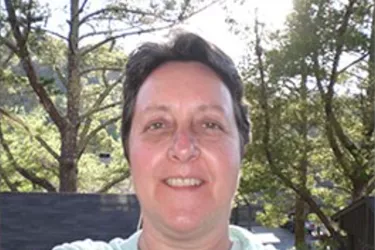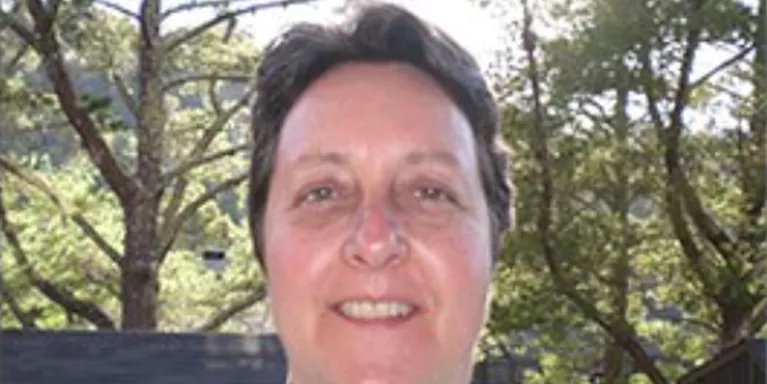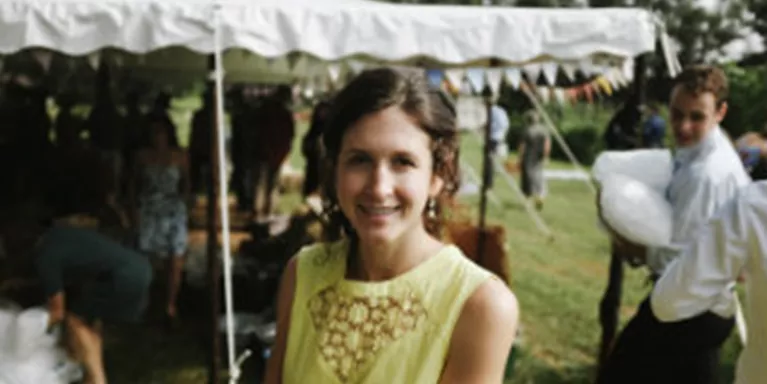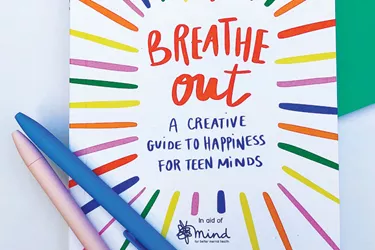A diary of mindfulness, week one - automatic pilot
In the first of her series on mindfulness and depression, Clare blogs about our tendency to go into auto pilot in our daily lives - and suggests some things you can try to make your day more mindful.
After 11 years on Citalopram, I'm hoping to cut down. I’ve been thinking about tools and techniques I can use to make the transition easier, and to help prevent further relapse into the recurrent depression I’ve experienced in the past.
I’ve come to recognise the main components of my ‘mental healthy toolkit’ as exercise and getting enough sleep. Smaller tools play their part too - my SAD light in winter, my diet (brazil nuts, bananas and dark chocolate are all supposed to enhance mood), my writing, my crafts and my garden.
But I wanted to try and understand what might be happening to my thoughts and attitudes, how these interacted with my low mood and how I could respond. I've had some sessions of counselling and tried online CBT in the past - but never in way that felt like it was creating and sustaining any real improvement.
It was while exploring these options that I returned to the Mindfulness based Cognitive Therapy for depression course at the London Buddhist Centre in Bethnal Green.
One of the most important parts of the course was the way it developed - each week our learning and understanding from the previous week was built upon and expanded. Learning to use mindfulness in this way is not something we can just be told. It's something we have to experience and practice, week by week.
I guess this is a particularly important point to make here too. While I hope to give people a sense of what MBCT is - and possibly some new perspectives or insights, reading about it is no replacement for doing a course and getting the practical experience.
I'll cover each week as we did on the course. I wanted to recreate something of this sense of building and discovery that we experienced. I would encourage you to read the eight posts in order - and stay with them.
So let's get started with the first week.

Week one - automatic pilot
Before the course started, we all got an email preparing us. It explained that we should expect to do an hour's practice and homework each day. It also said that the course wasn't really suitable for people who are in the middle of a depressive episode - it's designed to prevent relapse. It sounded like a big undertaking but I was keen to get started. It felt like I might be about to discover something new about how my mind works.
The group was a large one, thirty people or more. We met in a basement room at the Buddhist Centre. With green cushions on the floor and artwork on the wall, it felt like we were very removed from the bustle of Roman Road outside. Some people were obviously really quite anxious about the next eight weeks and whether they could 'do it', whereas others, like me, just seemed unsure about what to expect.
The leaders explained that we would be exploring helpful ways of responding to automatic thought patterns that can lead to relapse into depression in three main steps; developing awareness, being with our experience and choosing how best to respond.
Something they really emphasised was that it can take time for you to really understand the point of what you are doing. They encouraged us to stick with it and come each week, even if at the time we don't feel up to it, or don't see the point.
This was really useful. As the course starts, it isn't always clear exactly how it will help. The encouragement to just do something, to put one foot in front of the other without thinking about it and questioning it too much can be really helpful.
We started by looking at dried fruit! We were each given a cranberry and asked to spend time exploring how it looked, its texture and its smell as if we had never seen one before. We were asked to put it in our mouths and see what that felt like and then, finally, to bite it, to chew it and to notice how that felt, before taking the conscious decision to swallow it. Give it a go with your next mouthful of food. For me, this opened my eyes to my tendency to wolf my food, eating fast without really appreciating it.
We talked about how it felt to be more aware of the experience of eating. The course leader explained how the activity helped illustrate, in a really practical way, how much time we spent doing things on automatic pilot, just behaving mechanically without really being aware of what's going on. While the body is doing one thing, the mind is wandering off elsewhere.
She explained how this ‘autopilot’ can be difficult if you have suffered from depression in the past - as bits of negative thinking are more likely to go unnoticed. Then they slip into well worn grooves of thought processes that lead to stronger feelings of sadness. By the time these really surface they are much stronger and harder to deal with.
Another important thing she said was that, by being fully aware of an experience and how it feels, you can actually change the experience. In terms of the cranberry, this made a lot of sense - I have never tasted such a cranberry tasting cranberry as that one!
It's also worth saying that during this activity, another part of my mind was saying: 'I'm sick of looking at this cranberry, let's get on with it.' Initially I thought I was doing something 'wrong' here - but they explained the point was not to have any particular experience, but just be be aware of whatever our experience was.
The main thing at this stage was to realise how much of life slips by without us really being aware of what is going on. Missing out on the good means life isn't as rich as it might be. Missing out on the bad means we're not in such a good position to take action and depression can creep up on us. How to take action is what would come later in the course.
Awareness of the body
In the next part of the session we focused on bodily sensations with something called the 'body scan'. This felt more like a meditation. We lay on our backs and were guided through a process of being 'aware' of each part of our body in turn. They explained that our minds would wander but, when we recognised this, we should bring them back to just focusing on part of the body.
It was a strange experience. It's incredible how easy it is for your mind to wander off into default grooves of thinking, even when you are trying really hard not to let it happen. I expected something like this to be relaxing. In fact it was a real effort to keep the awareness focused on the body and to bring the mind back every time I realised it had wandered off into other thoughts.
What was interesting was that I started to get a glimpse of the processes my mind goes through as it moves through thoughts. I'd suddenly realise I had lost it again, that my mind had wandered from the body scan to thinking of something else, to a low feeling. Then I'd think: ‘Well how did I get here?’ At this point I could start to trace it back and see how I often jumped from one thought, to a more negative one, to a worry about something else.
After the body scan - which took about 30 minutes - we discussed it in smaller groups and then all together. One of the things everyone found it hardest to get their heads around was the idea that there was no right or wrong way to do it. It's so easy to think that there are rules to follow and a way of succeeding or failing at the activity.
In fact, what the leaders tried to explain was that doing it 'well' was not the issue - we're not even trying to relax and it's ok to feel bored, or uncomfortable, or for your mind to wander. It's how you handle this that is important.
For now, we were given a number of homework activities. We had to do the body scan every day - without expectations - and make notes on how we experienced it. We also had to choose one routine activity in our daily lives and make a deliberate effort to do it mindfully, in the way we ate the cranberry. I chose cycling to work. We also had to try and eat at least one meal a day in a mindful way.
Next week we would still be focusing on the first part of the course - developing awareness - but this time the focus would be on automatic judgements. I'll be writing about that in my next post.
Clare blogs about her mental health (and her work) at clarerosefoster.co.uk. You can follow her on twitter @fostress.
Read more from Clare’s mindfulness series:

Information and support
When you’re living with a mental health problem, or supporting someone who is, having access to the right information - about a condition, treatment options, or practical issues - is vital. Visit our information pages to find out more.
Share your story with others
Blogs and stories can show that people with mental health problems are cared about, understood and listened to. We can use it to challenge the status quo and change attitudes.

















